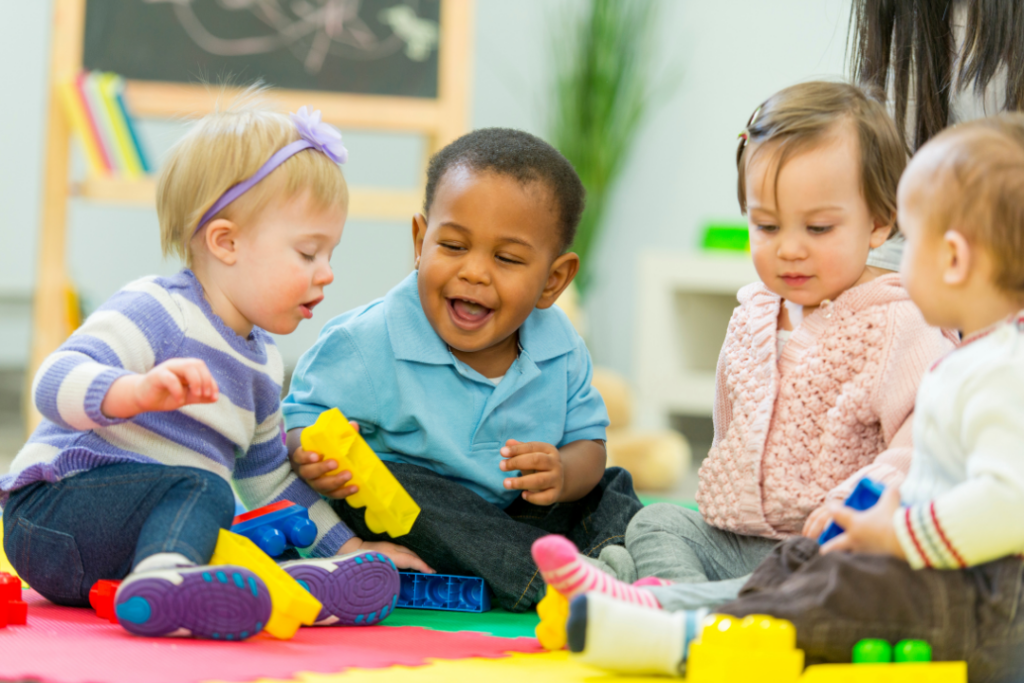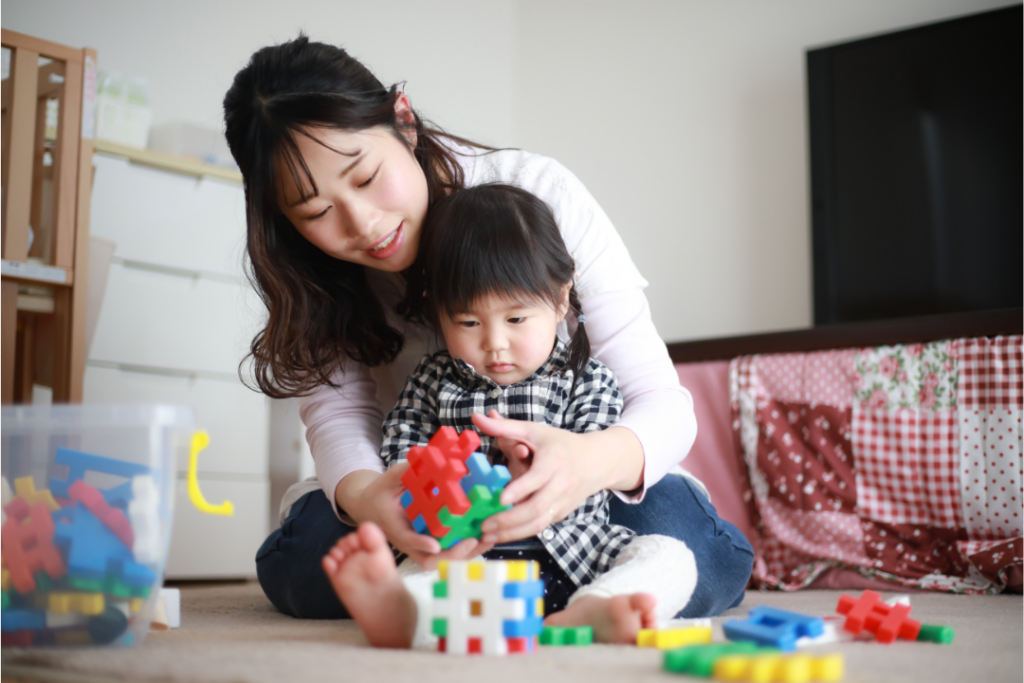Author: Elise Foxall, Paediatric Occupational Therapist
5 min read
Play is at the heart of childhood development. It’s more than just fun—it’s how children learn, grow, and connect. For paediatric occupational therapists and families, understanding the stages and types of play provides insight into a child’s developmental journey. Let’s explore how play evolves and why each stage matters.
Why Is Play Important?
Play is essential for cognitive, social, and physical development. Through play, children explore their surroundings, practise new skills, and form relationships. For therapists, play is a powerful tool, offering a window into a child’s sensory, motor, and emotional needs while fostering meaningful growth.

Stages of Play
Play develops in predictable stages, though every child progresses at their own pace. Here’s an overview of the key stages:
- Unoccupied Play (Birth to 3 Months)
Babies observe and move their bodies with curiosity, exploring how their limbs function and how the world feels. Though it seems passive, this stage lays the foundation for future play. - Solitary Play (3 Months to 2 Years)
During solitary play, children engage independently with toys, exploring textures, colours, and sounds. Parents can encourage this stage by providing safe, stimulating objects to spark curiosity. - Onlooker Play (2 to 3 Years)
In this stage, children observe others playing without direct interaction. They learn social cues by watching peers or siblings, building the foundation for later social engagement. - Parallel Play (2.5 to 4 Years)
Children play side by side but do not interact much. Parallel play promotes self-regulation and awareness of others’ presence, often observed in early group settings like preschool. - Associative Play (3 to 5 Years)
Children begin loosely interacting, sharing materials or ideas without a structured goal. Associative play nurtures social skills and fosters empathy. - Cooperative Play (4+ Years)
At this stage, children work together toward shared goals, such as in board games or group projects. Cooperative play reflects significant social development, including problem-solving and teamwork.
Types of Play
Different types of play support unique areas of development. Here’s how they benefit children:
- Physical Play
Activities like running, climbing, or throwing develop gross motor skills, coordination, and strength. Physical play also supports emotional regulation by providing active sensory input. - Constructive Play
Building towers, crafting art, or solving puzzles enhances fine motor skills, creativity, and problem-solving abilities. - Pretend Play
Role-playing and storytelling encourage language development, abstract thinking, and emotional expression. This type of play is particularly valuable for supporting social communication. - Social Play
Games like tag or hide-and-seek promote teamwork and social negotiation. Social play helps children navigate friendships and build resilience. - Sensory Play
Activities involving textures, sounds, or smells, like playing with sand, water, or slime, help children process sensory input. These activities can soothe or stimulate their sensory systems.
How to Support Play
Therapists and caregivers can foster meaningful play by:
- Following the child’s lead: Let their interests guide activities.
- Providing varied opportunities: Offer open-ended materials like blocks, dress-up clothes, or art supplies to spark creativity.
- Creating a safe environment: Encourage exploration without fear of failure.
- Engaging relationally: Join in when invited to strengthen connection and trust.

Neurodiversity and Play
Each child’s engagement with play is unique. Some children may prefer solitary or sensory play, while others thrive in imaginative or physical activities. Adopting a neuroaffirming approach celebrates individual preferences and adapts environments to support their success.
Final Thoughts
Play is more than just an activity—it’s a cornerstone of childhood development. By understanding the stages and types of play, therapists and families can nurture children’s growth while supporting essential skills.
Whether it’s through sensory bins, pretend games, or cooperative challenges, every moment of play helps children grow into confident, connected, and capable individuals. Let’s honour the power of play in fostering meaningful development.
If you feel like your child is struggling with play or social skills contact MoveAbout today. Check out our Facebook and Instagram pages for more education regarding sensory processing and regulation.

